CENTCOM commander reiterates fear of small drones in secret Iraq visit
The top US commander for its Middle East military operations has once again expressed concerns about the need to find ways to counter drones targeting American forces in the region, reiterating during a secret visit to Iraq that the US is yet to come up with effective solutions.
“We’re working very hard to find technical fixes that would allow us to be more effective against drones,” said Chief of the US Central Command (CENTCOM) Marine Gen. Frank McKenzie during a Thursday briefing with select reporters accompanying him in his clandestine visit to Iraq and Syria but not allowed to report it until he left the region on Friday.
“We’re open to all kinds of things. The Army is working it very hard. Still, I don’t think we’re where we want to be,” McKenzie underlined as quoted in an AP on Saturday, insisting that efforts are underway “to look for ways to cut command and control links between a drone and its operator, improve radar sensors to quickly identify the threat as it approaches, and find effective electronic and kinetic ways to bring them down.”
He also noted that “fencing and high netting” can also be used as protective measures, further expressing fear that the use of small drones by Iraqi militia forces -- resisting continued US military presence in the country despite a parliamentary call last year for their ouster – “is only going to grow in the next few years,” according to the report.
After spending Thursday in Iraq, McKenzie was in Syria on Friday, “meeting with US and partner commanders and forces at four different bases,” it added.
His remarks came a month after an explosives-laden drone targeted American forces at a US-operated military base in northern Iraq causing a large fire and damage to a building. Though no one claimed responsibility for the attack, Washington has blamed what it commonly refers to as “Iran-backed militia groups” for previous attacks on its military installations throughout Iraq.
McKenzie has also claimed that such drones are “cheap and easy to buy” but difficult to detect and problematic to defeat, insisting that the US must find better ways to counter their use “by America's enemies in the Middle East and elsewhere,” the report added.
This is while overall attacks against American troops across Iraq have surged since Washington ordered a terrorist drone strike to assassinate top Iranian Gen. Qassem Soleimani and the deputy commander of Iraq’s Popular Mobilization Units, Abu Mahdi al-Muhandis, near the Baghdad airport last year. The overt US terror attack enraged the Iraqi nation and led its parliament to pass a resolution calling for ouster of US-led foreign troops from the country.
Earlier this month, the Ain al-Asad air base housing US troops in Iraq’s western province of Anbar also came under a drone attack, damaging a hangar for military aircraft.
The explosives-laden drone reportedly crashed inside the air base, located about 160 kilometers west of the capital Baghdad, without causing any damage, according to US and official Iraqi media sources. The attack came amid numerous rocket attacks against other American military facilities across the country.
The new US administration of Joe Biden, however, has resumed strategic talks with Baghdad, initiated under his former Republican rival and predecessor Donald Trump, in which the future of American troop presence in Iraq remains a top agenda with the CENTCOM commander hoping for continued US military engagement in the country, bordering Iran and Syria – the top targets of US and Israeli military, economic and propaganda measures.
McKenzie, however, claimed during his secret visit that the Iraqi militia groups “are frustrated because there had been some hope that US forces would leave Iraq,” particularly in the wake of the terror assassination of Gen. Soleimani, according to the report.
“They believe they can carry out attacks at a fairly low level that won’t provoke a response, yet will create enough friction that will eventually induce us to leave,” McKenzie told “reporters” traveling with him to Iraq and Syria as quoted in the report. “I think it’s a dangerous situation.”
The development came nearly two weeks after giant US weapons and aerospace firm Lockheed Martin withdrew its staff from a military base in Iraq where it had been maintaining the Iraqi F-16 fighter jets, citing security concerns.
Quoting anonymous military sources, media outlets reported on May 10 that the American military contractor had decided to pull out its maintenance teams for Iraq army's F-16 fighter jets for security reasons, after a spate of rocket attacks targeting US forces and contractors in the country.
"The technical team in charge of maintenance of the F-16s left the Balad base for Arbil," the capital of Iraq's Kurdistan region, said a high-ranking Iraqi military official that spoke on condition of anonymity as quoted in an AFP report at the time.
The departure by the giant US weapons manufacturer from Balad air base near Baghdad came amid surging attacks on American military installations in the country and growing calls for the withdrawal of US-led forces.
‘Textbook definition of terrorism’: Tehran denounces Pelosi’s call on US to exact ‘pain’ on Iranians
VIDEO | 39th AU summit opens in Addis Ababa with focus on water security, peace, and development
VIDEO | Iran: The stronghold Washington lost
Anti-Iran ‘Munich circus’ shows Europe has lost geopolitical weight: Araghchi
Swiss to act as venue of next round of Iran-US talks: Report
Report: Over 50,000 soldiers fighting in Israeli military hold foreign citizenship
Danish PM warns US attack on Greenland would spell end of NATO
Power running out at key Gaza hospital, ICU patients at risk: Report


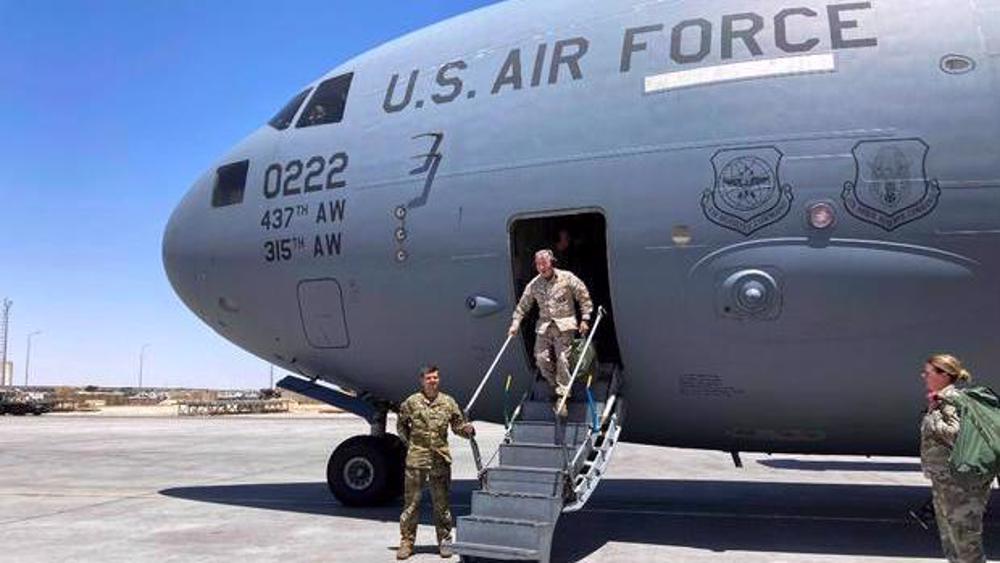


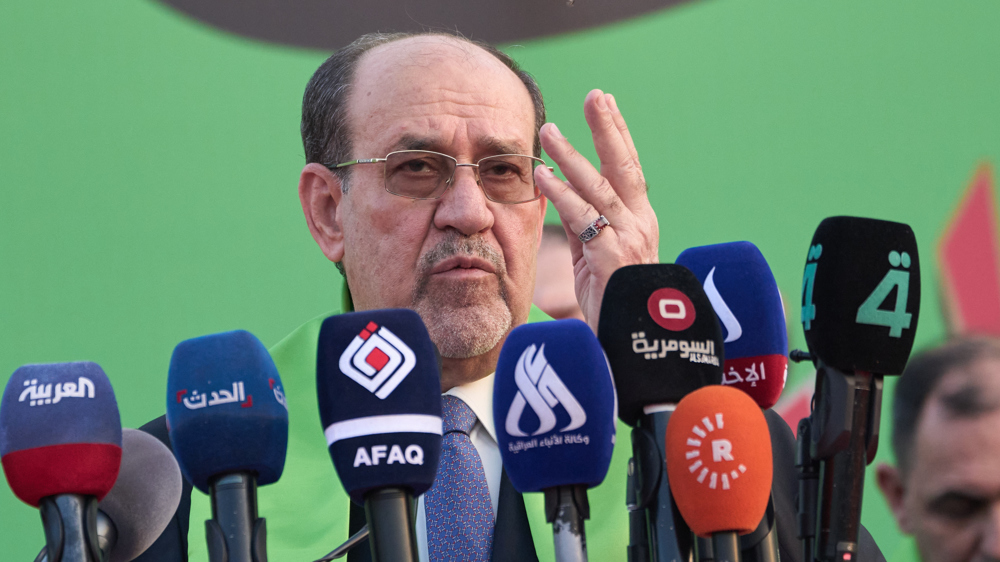
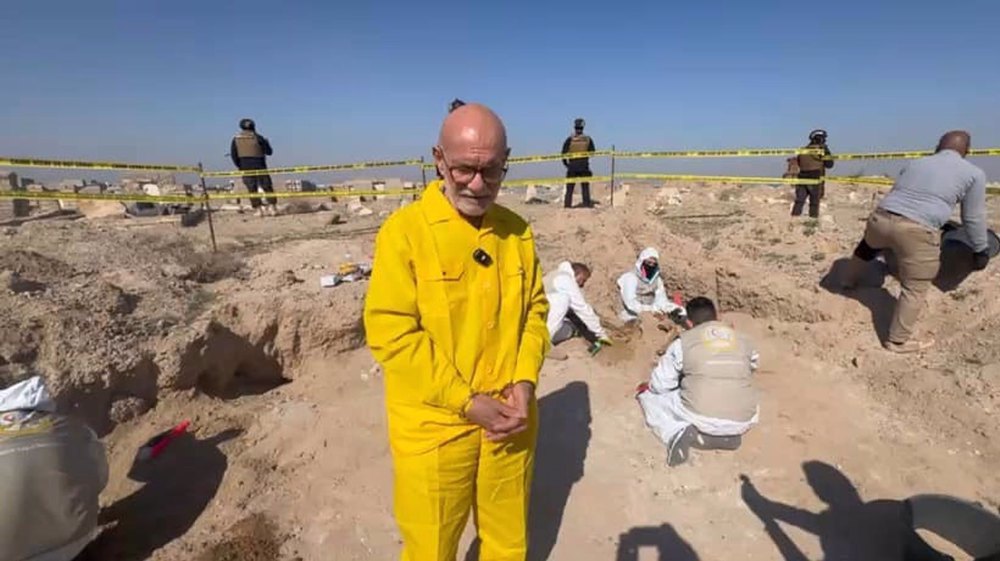
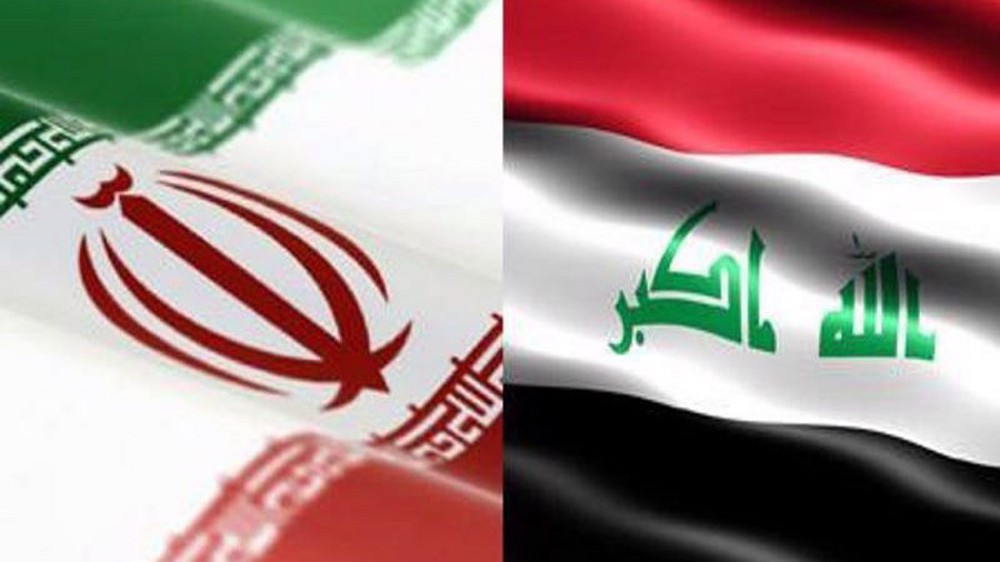



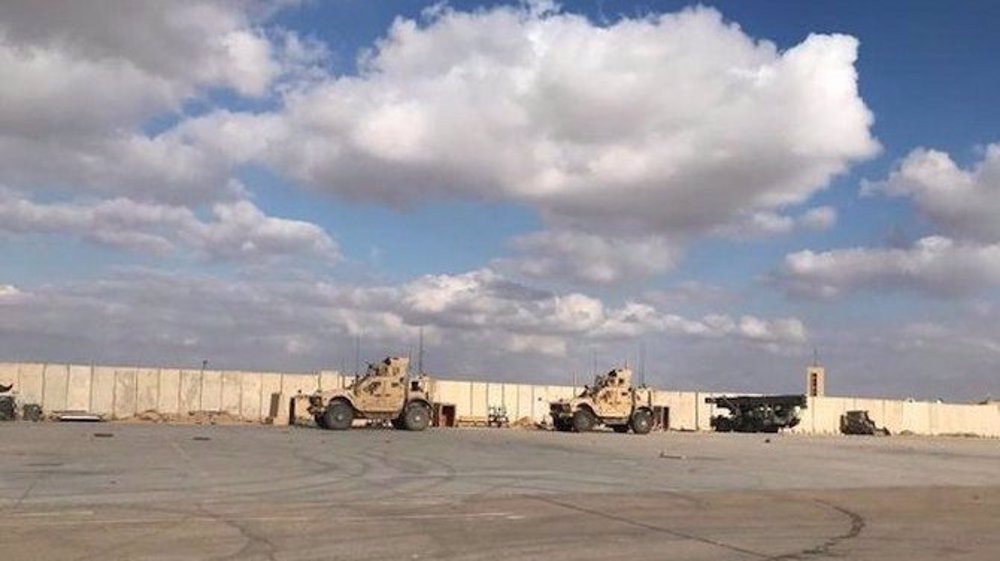
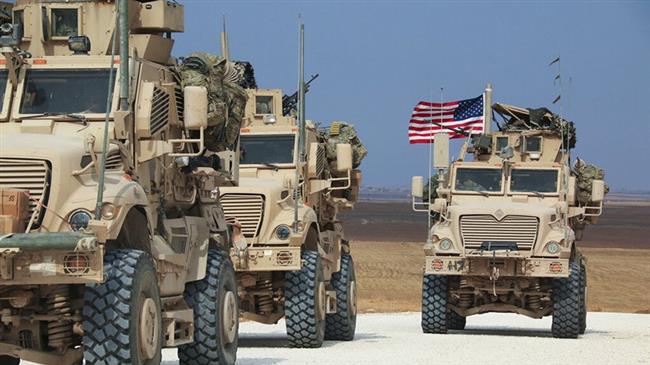
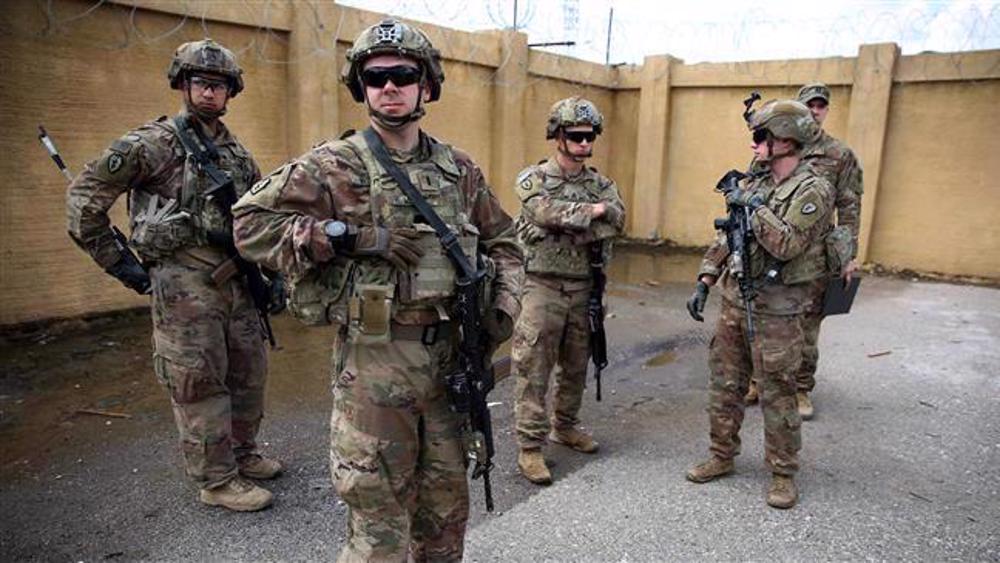


 This makes it easy to access the Press TV website
This makes it easy to access the Press TV website